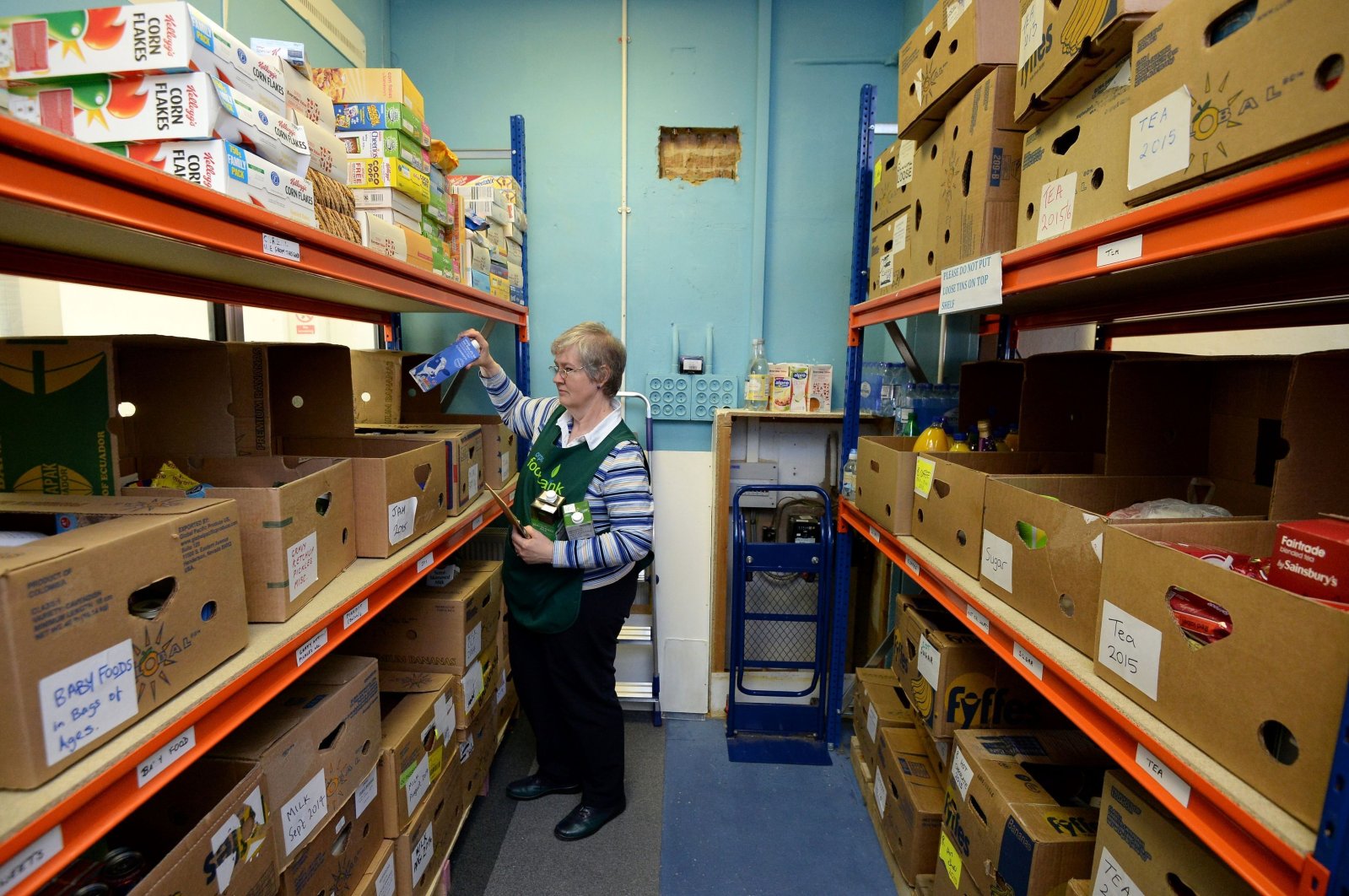
A cost-of-living crisis in the United Kingdom shows little sign of easing, as hundreds of thousands of more people facing hardship turned to emergency supplies over the recent 12 months, Britain's biggest food bank network said Wednesday.
The number of emergency food parcels that the Trussell Trust distributed rose 37% to a record 3 million in the year to March, the network said.
The Trussell Trust, which supports a network of 1,300 food bank centers across the United Kingdom, said more than a million parcels were provided for children, an increase of 300,000 from a year earlier.
The number of emergency packages going to children the previous year was over 800,000, it said. In 2017-18 the figure was less than 500,000.
The figures come as the U.K. – a G-7 member and one of the world's richest countries – grapples with the biggest surge in prices in decades, with fuel, heating, food and housing costs all soaring.
Food banks have become a feature of life as increasing costs, combined with wage stagnation, have pushed many to seek help for the first time – even those in work.
The Trussell Trust said over the year, 760,000 people used a food bank in its network for the first time, an increase of 38% year-over-year.
This included an unprecedented rise in the number of employed people, who are no longer able to balance a low income against rising living costs.
"We are experiencing an unprecedented rise in the number of people coming to the food bank, particularly employed people who are no longer able to balance a low income against rising living costs," said Brian Thomas, chief executive of South Tyneside food bank in northeast England.
"We're also seeing a really high number of families needing support as people struggle to afford the essentials."
Under strain
Britons have been pressured for more than a year by high inflation, which has outstripped pay growth for almost all workers.
Last month government forecasters estimated U.K. households were amid the biggest two-year squeeze in living standards since comparable records started in the 1950s.
Official U.K. data published last week showed overall consumer price inflation fell to 10.1% in March. However, prices of food and non-alcoholic drinks were 19.1% higher in March than a year earlier, the biggest such rise since August 1977.
Grocery inflation in April was 17.3%, according to industry data.
The Trussell Trust also noted that the number of parcels provided in the year to March was more than double the annual amount distributed by food banks five years ago.
The cost-of-living crisis has seen sectors across the economy, from doctors, nurses and teachers to dock workers and lawyers, stage strikes in the past year.
Thomas added that the situation had hit donations as more people struggled to meet basic costs for themselves.
"Food donation levels are not keeping up with the significant increase in need and this is putting us under a lot of strain, it's a real pressure cooker situation for food banks," he added.
Emma Revie, chief executive of the Trussell Trust, said food banks were set up to provide short-term support to people in an emergency but had now become the norm for low-paid workers and people receiving welfare payments.
"They are not a lasting solution to hunger and poverty, and more than three-quarters of the U.K. population agree with us that they should not need to exist," she said.
"The continued increase in parcel numbers over the last five years indicates that it is ongoing low levels of income and a social security system that isn’t fit for the purpose that are forcing more people to need food banks, rather than just the recent cost-of-living crisis or the COVID-19 pandemic."
The Trussell Trust is urging the Conservative government to increase welfare payments to a more realistic level so that they cover essential costs.
The current chairperson of the Conservative party, Lee Anderson, has sparked outrage by saying that people struggling with rising prices should budget better and questioned whether food poverty was real.
